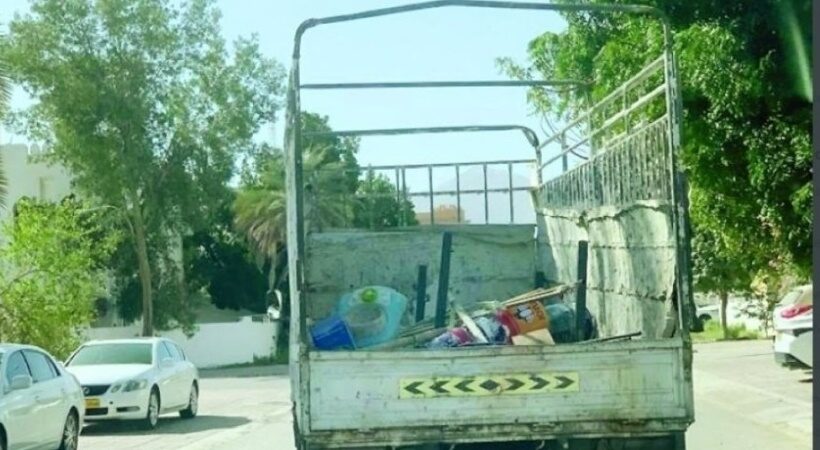The Minister of State and Governor of Muscat has decided on 6 March 2022 to regulate the collection of scrap materials from residential neighbourhoods in the capital.
The decision will come into effect within 30 days of its publishing in the gazette.
The licenses are needed to engage in scrap collection and handling business, which must be renewed before the expiry, as per Article 1 of the decision.
A license is mandatory to engage in activities of scrap dealership after meeting the commercial registration requirements including a lease contract for the commercial entity established to conduct the business.
The scraps from which steel and copper can be extracted shall be collected and traded only in industrial zones. The decision also bans scrap dealers from roaming in residential areas to collect or trade scrap.
The establishment must pass the technical audit of the facility to ensure that the environmental conditions are met.
A license fee of RO305 will be collected at the time of the application by the governorate, which includes an application fee of RO5. The fee for the renewal of the license is RO300.
The validity period of the license shall be for one year, and this may be renewed or extended.
The penalties for not obtaining the license or permits will include the fine of RO50 to RO500 and the fine will be doubled if the violation is repeated.
The decision also specifies the number of scrap materials that are not allowed to be collected or circulated without the written consent of the scrap owner. The descriptions, types and quantities of scrap are also specified and approved by the Royal Oman Police.
Scrap metal collectors and dealers are not permitted to concede the license to another person nor are they allowed to practice the activity outside the designated area or in residential quarters.
The regulations also criminalize dealing in scrap metal coming from unknown sources.
The decision is taken because of recurring and persistent complaints regarding scrap collecting vehicles and to address public concerns.
Previously, the scrap collecting vehicles used to ply in various residential neighbourhoods in most governorates of the Sultanate of Oman. It brought a lot of problems to the residents due to the noise made by these vehicles.
In addition to this, the environmental pollution of these vehicles forced many citizens and residents to complain to the authorities concerned regarding these vehicles and sought to find a solution to this issue.
This has resulted in the issuance of a regulation controlling the practice of scrap collection and handling activity in the Muscat Governorate.
The regulation issued in 2009 that regulated the practice of scrap collection and handling activity in Muscat, noted that one of the most important requirements is to ensure that all health and technical requirements are met for this job.
One of its most important national priorities is to achieve a sustainable environment and to develop sustainable governorates and cities to create an atmosphere suitable for environmentally and socially safe living.
However, the continuation of such practices prevents achieving the desired results in comprehensive sustainable development and promoting social and economic prosperity. The illegal activities of these vehicles in residential neighbourhoods cause environmental and economical damages. These activities also raise security concerns.



















